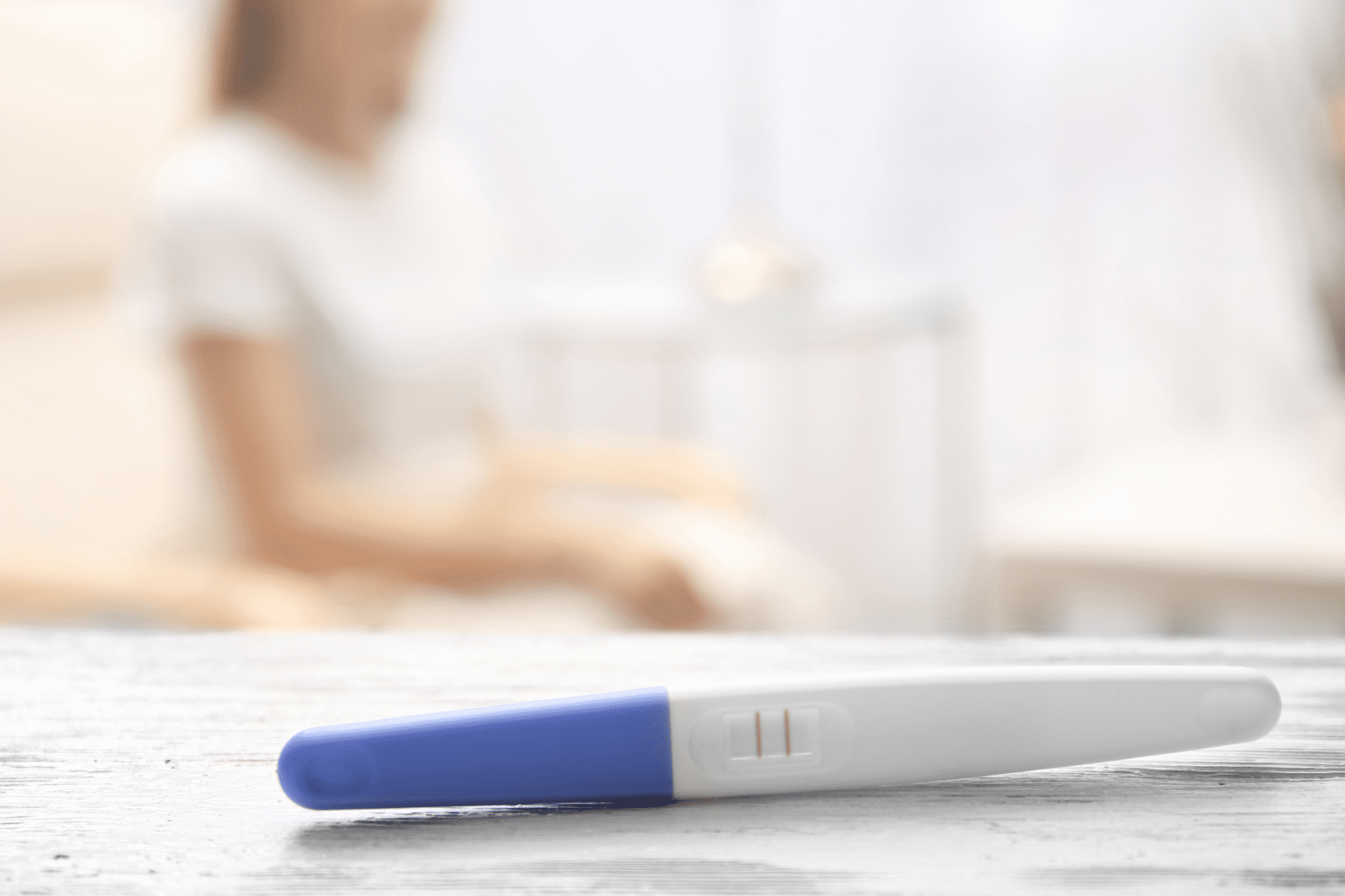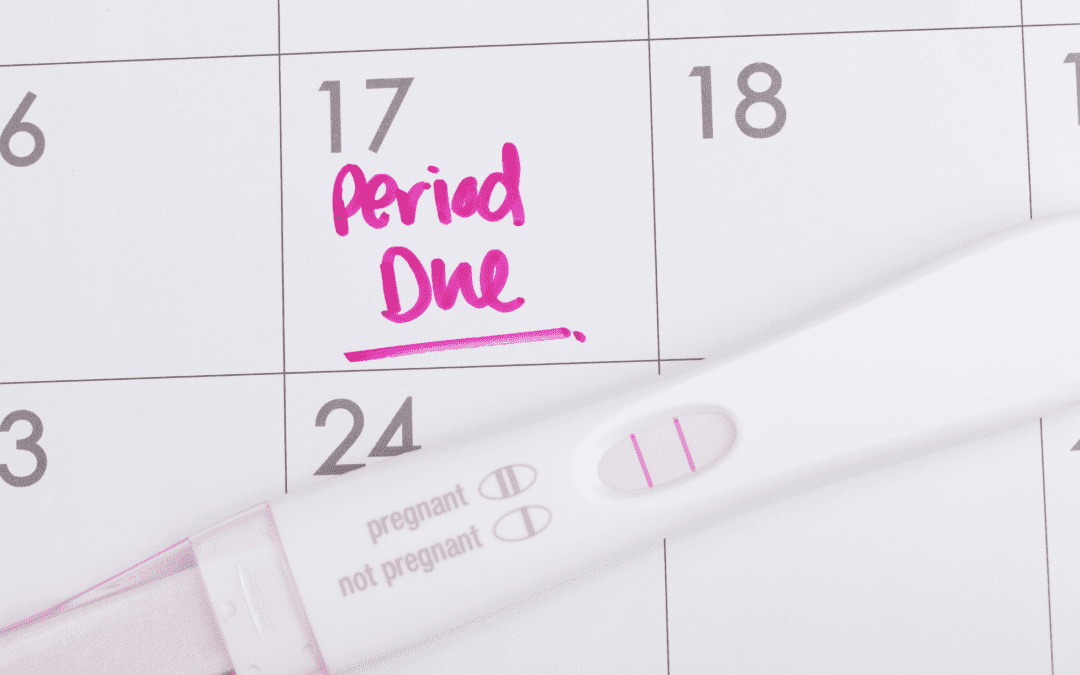Many myths about unplanned pregnancies are considered true. Some of this misinformation leaves women feeling more scared and anxious about their pregnancies than they should be.
Other myths leave women more vulnerable to getting pregnant unexpectedly.
We believe women should feel confident in their fertility and equipped to make informed decisions if they do become pregnant. In this blog, we’ll debunk some of the common myths about unintended pregnancy so you are better prepared.
5 myths about unplanned pregnancies
MYTH: Unexpected pregnancies only happen to teens
Some people think that only teens get pregnant accidentally. Thanks to countless movies and shows about teen pregnancies, this is a common misconception.
In truth, any pre-menopausal woman can get pregnant without meaning to. Women who are in their late teens or twenties, when a woman is at her fertile peak, may have a higher risk of getting pregnant. But many women naturally conceive in their thirties and forties.
At Thrive Orlando, we see women of all ages. Our patients are from many different backgrounds as well. Some are career-driven, unmarried women in their late thirties who didn’t think they could get pregnant. Others are college students in long-term relationships. We have also seen married couples, both with and without children, who weren’t expecting a pregnancy.
Pregnancy can happen to any woman, often at any time. No matter the circumstances, we can help you learn about your health, pregnancy, and options.

MYTH: A surprise pregnancy will ruin your life
Some of our patients tell us that they worry they can’t finish school, pay their bills, or maintain a relationship with their partner if they are truly pregnant. Too often, these women feel trapped and hopeless about their futures.
But, as we tell these patients, your unexpected pregnancy is not the end of your dreams. It’s simply a surprising turn that you have to adjust to.
During your appointment, you can discuss your plans, obstacles, and fears with your patient advocate. She’ll help you learn about and think through your different options. Once women start sharing these feelings, many are surprised to realize their situations seemed worse in their heads than they were in reality.
You’ll also receive referrals to organizations that can help with your specific challenges. Whether you need financial assistance, educational help, material needs, or emotional support, we can connect you to the services you’re looking for.
MYTH: Every unplanned pregnancy is the same

You, your circumstances, and your body are unique, so your pregnancy is too.
That also means that the right option for your pregnancy may be different than it was for your friend, sister, or mentor.
Too often, we see women who feel pressured to make a certain choice. This pressure can come from partners, parents, and loved ones who think they know what’s best for you. It can also come from online or media sources that believe in a one-size-fits-all approach to unexpected pregnancies.
You are the only one who can, and should, decide what’s best for you and your pregnancy. Don’t let anyone push you into making a choice you’ll regret.
MYTH: You can’t get pregnant while using contraception
We hear it often, “But I took Plan B,” “We used a condom,” or “I’ve been taking birth control for years.”
Unfortunately, contraception isn’t as effective as it seems. Many people use it inaccurately (skipping a dose of birth control accidentally, using an old, incorrectly sized condom, etc.), which lowers its effectiveness as well.
The CDC reports the typical use failure rates for most contraceptives as:
- Intrauterine devices: 0.1-0.8%
- Birth control implant: 0.1%
- Birth control shot: 4%
- Birth control pills: 7%
- Birth control patch: 7%
- Vaginal contraceptive ring: 7%
- Diaphragm/cervical cap: 17%
- Sponge: 14-27%
- Male condom: 13%
- Female condom: 21%
- Spermicide: 21%
- Fertility tracking: 2-23%
Contraception, including emergency options like Plan B, can only lessen your risk of getting pregnant. Any time you have vaginal sex, there is a risk that you will conceive.
If you aren’t in a committed relationship or ready to be pregnant, abstinence is the only 100% effective way to prevent pregnancy and protect your sexual health. Otherwise, using contraceptives exactly as directed and tracking your fertility are your best options.
MYTH: Unintended pregnancy options are limited
Abortion, adoption, and parenting are the three main options for any unexpected pregnancy.
But did you know there are more options within these three choices?
There are several types of abortions, including the abortion pill, suction abortions, dilation and curettage abortions, and more. The requirements, costs, and risks to your health are different for each procedure.
If you choose adoption, you can choose the adoptive family and what kind of relationship you have with them after the adoption. You have full control over nearly every part of the process.

Parenting also comes with numerous choices. You can determine the best way to accomplish your goals while also parenting your child.
We can help you explore each of these pregnancy options and find resources that will help you feel confident in the decision you make.
Get unplanned pregnancy help at Thrive Orlando
The first step for any surprise pregnancy is to confirm it with a lab-quality pregnancy test. Once confirmed, you’ll receive a limited ultrasound and STD testing and treatment. You’ll also get the chance to speak with your patient advocate about your options and any questions you might have.
Get the facts about your pregnancy, options, and resources. Schedule an appointment today.

